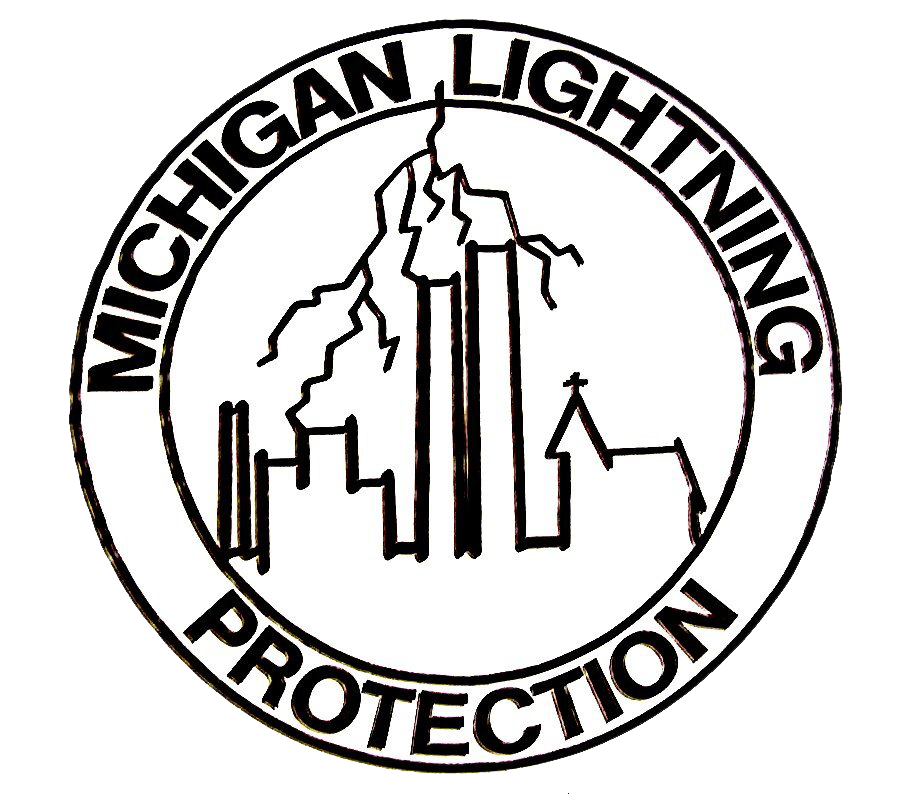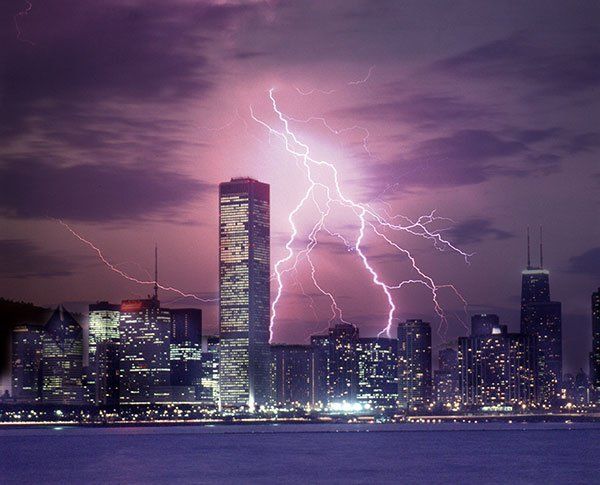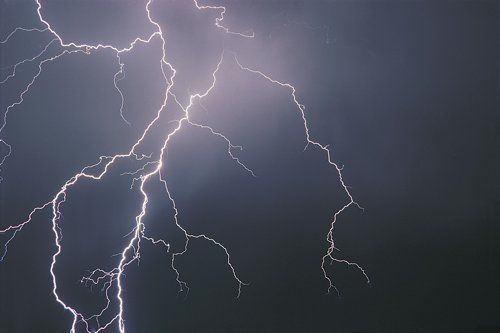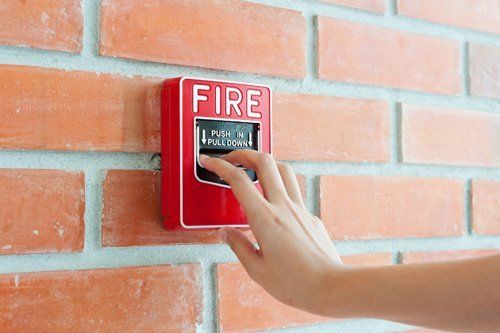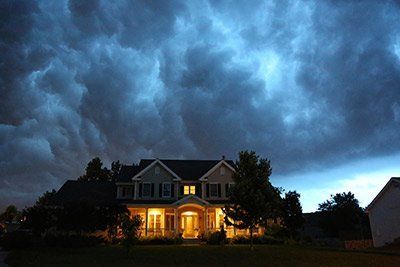Lightning Rods and Lightning Protection Systems for Total Lightning Protection in Michigan Since 1926
Blog Layout
Dangers and Risks When Lightning Strikes Your Home
Admin • November 2, 2017
When you were a child, your parents probably told you to get off the phone or get out of the tub whenever a storm was brewing. This was because they were worried that their home and maybe even their children would be struck by lightning.
While it may have seemed like your parents were overreacting, the truth is that it can be dangerous when lightning strikes a home.
Fire Risk
When you think about your home getting struck by lightning, your biggest concern is probably that you, a pet or a loved one might be struck.
The good news is that the risk of lightning striking a person inside the home is low. Unfortunately, another risk you may not have thought of exists: the risk of fire.
When lightning comes into contact with flammable objects in your home, a fire can easily start. Worse yet, fires can start in areas you cannot see, such as your attic. Fires are common in higher levels of the home and often go unnoticed until the smoke and flames have caused serious damage in your home.
The threat of fire is real and scary, which is why protecting your home against lightning is always smart.
Destroyed Electronics
Another thing to be concerned about are any electrical devices that you have plugged into outlets in the event of a storm.
If lightning strikes, causing an electrical current to pass through these objects, the objects are likely to be destroyed. They will typically sizzle, crack and pop when they have become damaged. Usually they will not turn on again, but you shouldn't attempt to turn them on or plug them in after lightning has hit because doing so could be dangerous.
If you want to see if your items still work, take them to a professional repair service or to an electrician who can check them out safely.
This can be frustrating because electronic items are likely to be expensive or to contain important files or other information you can't easily recover if lost. These items can also catch on fire themselves, furthering the risk of a house fire as a result of lightning.
Injured People
While the chances of a person being hurt by lightning while inside the home are low, it is possible and you should still exercise caution in an effort to protect yourself and those you care about.
Lightning can often injure people who are using a plugged-in electronic device when a storm is raging. For this reason, avoid electronics use, especially electronics that come in contact with the skin like a traditional phone or headphones, when lightning is striking.
Avoid lying down on hard floors or leaning against walls during a storm. These structures often have metal parts inside, which makes them vulnerable to being struck by lightning and could cause injuries as a result.
Electrical Damage
Lightning can also damage your home's wiring system. Even if you think everything is fine, you have no way to know that your home's wiring has not been affected in some way.
For this reason, avoid turning on any electricity or electrical devices in the home after a lightning strike until a qualified electrician can come out and assess the damage.
Lightning can pose a threat to your home and the things and people inside of it. For this reason, you want to do everything you can to keep your home safe. For help and ideas on keeping your home safe, contact the experts at Michigan Lightning Protection. We can provide products and information about what to do to stay safe in a lightning storm.
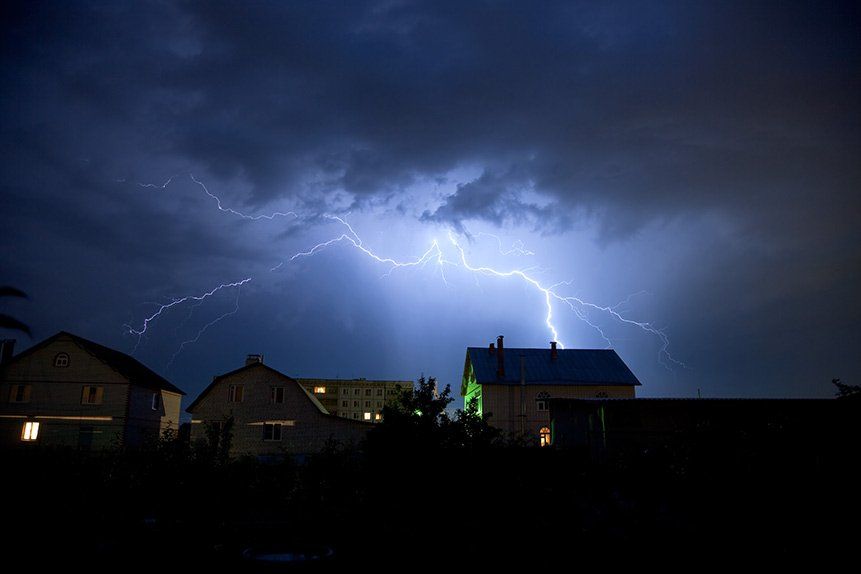
By Admin
•
February 28, 2018
Many people underestimate the dangers of lightning strikes due to lightning myths, which leads them not to take proper lightning safety precautions. Lightning is actually one of the most common causes of weather related deaths in the United States, and lightning strikes kill an average of 100 people each year and injure 1,000 more.
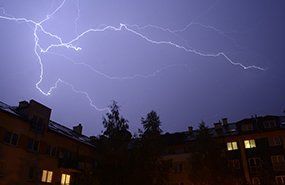
By Admin
•
January 3, 2018
While lightning rods are often seen as an artifact from the past, lightning protection systems are used in more businesses and homes today than at any time in history. According to safety consulting and certification company UL, lightning strikes can cause more than $1 billion in economic damages every year.
Carrying every major lightning protection endorsement available, Michigan Lightning Protection possesses the necessary skill and tools, backed by a commitment to quality, to handle your
lightning protection needs.
QUICK LINKS
CONTACT INFORMATION
Phone:
616-453-1174
Email: Info@michiganlightning.com
Fax: 616-791-7380
Address: 2401 O’Brien Rd. SW Grand Rapids, MI 49534
Mailing Address: P.O. Box 140586 Grand Rapids, Mi 49514


BUSINESS HOURS
- Monday
- -
- Tuesday
- -
- Wednesday
- -
- Thursday
- -
- Friday
- -
- Saturday
- Closed
- Sunday
- Closed
QUICK LINKS
CONTACT INFORMATION
Phone:
616-453-1174
Fax: 616-791-7380
Email: Info@michiganlightning.com
Address:
2401 O’Brien Rd. SW
Grand Rapids, MI 49534
Mailing Address:
P.O. Box 140586
Grand Rapids, MI 49514
BUSINESS HOURS
- Mon - Fri
- -
- Sat - Sun
- Closed


CONTACT US TODAY!
Contact Us
Thank you for contacting us.
We will get back to you as soon as possible.
We will get back to you as soon as possible.
Oops, there was an error sending your message.
Please try again later.
Please try again later.
Content, including images, displayed on this website is protected by copyright laws. Downloading, republication, retransmission or reproduction of content on this website is strictly prohibited. Terms of Use
| Privacy Policy
